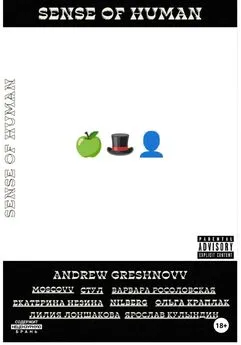David Steindl-Rast - Words of Common Sense
- Название:Words of Common Sense
- Автор:
- Жанр:
- Издательство:Templeton Foundation Press
- Год:2002
- Город:Philadelphia London
- ISBN:1-932031-43-X
- Рейтинг:
- Избранное:Добавить в избранное
-
Отзывы:
-
Ваша оценка:
David Steindl-Rast - Words of Common Sense краткое содержание
Words of Common Sense - читать онлайн бесплатно полную версию (весь текст целиком)
Интервал:
Закладка:
Acknowledgments
As an author, I am keenly aware that it takes the common effort of many people to bring about a book. This book owes much to the kindness and efficiency of Joanna Hill, Laura Barrett, and their coworkers at the Templeton Press;and to Thomas Moore’s gracious and thought- provoking introduction. My thanks go also to Patricia Campbell Carlson for her personal assistance in every phase of preparing the manuscript; to Rosemarie Primault for generous research and advice; to Daniel Uvanovic for helping me clarify the concept of common sense; and to all the friends who offered helpful comments on early drafts. I owe a great debt to John Dominic Crossan, whose books In Parables and Cliffs of Fall gave me a new perspective on the parables of Jesus; and to Selwyn Gurney Champion, M.D., for his classic collection of proverbs from all parts of the world.Above all, I am grateful to the countless people throughout the ages — from beggars to queens — who passed on to us through proverbs the wisdom of common sense. Last not least, my thanks to Gumpa, my helper who showed considerable common sense as message- carrying cat.
Introduction by Thomas Moore
It’s been a long time since I have read anything so fresh, so useful, and so full of common sense as these thoughts of Brother David. Many write about wisdom as if it were a prize to be gained after many decades of study and meditation, but common sense is immediate. You can be young or old, practical or dreamy, schooled or the salt of the earth and enjoy common sense. Brother David writes for you and for me, for anyone who wants to live a life that is rich in significance and pleasure. He gives common sense its depth, going far beyond any anti-intellectual or vulgar sense of the term. Something in modern life makes us anything but common. Its two special forms of neurosis are narcissism and depression. The first comes about because we find it difficult to be individuals in a world that treats us as parts of a great social machine, not as unique members of a community.The second appears frequently because, for all the convenience and entertainment available through modern achievement, generally we no longer have the sheer joy of being alive and connected to the natural world and to each other. Both are symptoms of a loss of commonality.
Narcissism is the awkward and ineffective attempt to be somebody.We have to insist on our mere presence:“Look what I can do! I’m special, chosen, on the right side of things, and you’re not!”The narcissist thinks he knows how everyone else should think and live — like him. But a person of common sense enjoys sharing wisdom with everyone else. He can learn from his neighbor, just as he can make a contribution.
Naturally, as in most common sense matters, there is a paradox at work: The only way to feel like somebody is to be an active member of community.The narcissist can’t surrender to the common. She daydreams of being exceptional and remarkably successful. But a person comfortable with herself can be at home with others. He senses the beauty and sufficiency in being a member of the human race and a being among other beings of nature. She enjoys the existence and achievement of someone else. He wants species to survive and dreams of lying down with the lamb and the wolf. Over many years of doing psychotherapy, I have heard many dreams in which the dreamer without a thought beats and kills animals just because they are there. With a little common sense, we could live in harmony with nature.
A related malady is the cult of celebrity. Ordinary people show signs of near insane mania in the presence of fame.Those who are famous tell of the loneliness they sometimes feel at being segregated from the common, but they also feel fulfilled and complete at having extricated themselves. Many who will never be famous feel condemned to ordinariness, and they can only dream impossibly of their escape from the herd.
I think we can find relief from both the hunger for individuality and the sadness of the collective by overcoming the split between the extraordinary life and life in community. But this has to be done concretely. Lonely men or women, desperate for love and longing for an identity, could discover the treasure they seek through service and engagement. For another paradox rules: you find the precious self by surrendering your self. Your soul is not to be found in the empty halls of your own personality but in the needy and confused lives of neighbors— the children in need and the adults trying to get along.The best way to make sense of your life is to contribute to the life of someone else.
Common sense is a sense of the common, the awareness that we discover who and what we are in relationship, not only to people but also to everything that is.That is why I love the many sparkling proverbs Brother David has collected: They tell in colloquial, witty, and imaginative ways what happens to us all on ordinary days and in our ordinary lives.They are not rules for any select individual but apply to everyone. Call them archetypal or mythic.They place us in touch with our humanity and offer a foundation for thinking freshly about everyday situations.
Connecting these proverbs to the parables of Jesus helps me appreciate the role of religion in the common life. Religious groups suffer the neurosis of modernism just as individuals do. They have to compete and insist on their special claims to truth. They often forget common sense and even go against it in a feverish and desperate effort to be special. But there is nothing more common than the spiritual life and the rich imagination of the religions. Each tradition speaks to every man, woman, and child on earth.The difference in expression is only the richness of the imagination in which common sense finds power and persuasiveness.
Another paradox: The more particular the expression, the more it applies to everyone. I don’t try to make all the religions sound alike. In their differences lies their commonality. Esperanto of the spiritual life, an artificially extricated language of virtue and wisdom, would be a caricature of common sense. Noting common concerns and lessons among Jesus, Mohammed, and the Buddha brings to light a certain beauty and persuasiveness, but so do all the precious differences and unique ways and teachings. Common sense is not an intellectual meatball, a ground round of rich intellectual nurturance made into a bland patty of truisms. Common sense is a sharp, resonant realization of how things are in the present circumstance and across the globe.
In a world grown small through communications and travel especially, we need a common sense approach to conflicts and problems. Leaders and politicians tend to make it all too complicated, so that we never advance toward a positive and lasting peace.The issues are really quite simple: We want life in abundance. We want our children to be safe, healthy, and happy. We are mice of the same hole. One hand washes another. Every cabin has its mosquito, but a single bracelet doesn’t jingle.
Common sense, and only common sense as defined by Brother David, could get us out of our racial, gender, and sexual conflicts. It could resolve the problems of world poverty and hunger, but apparently, we don’t have the common sense to use it. The choice of uncommon sense — complicated solutions to dire problems — merely temporizes. It serves as a defense against the most apparent solutions that threaten the status quo, which in turn depends on inequality. We avoid common sense precisely because it would lead to the necessary changes.
Rarely am I so pleased with a book and feel its raw power. Brother David has not written this overnight. He has brought a lifetime of reflection and experience to a theme that has infinitely more importance and practicality than it appears to have. He has by-passed the more familiar route of artificial complexity, finding his way instead through the more common way that is more subtle and profound. He describes a way to think and feel with our fellow beings and discover solutions to our problems that are deeply in tune with our humanity.
What Is Common Sense?
Bellyful make potato have skin.
— AFRICAN AMERICAN
The one who is not hungry calls the coconut shells hard.
— ETHIOPIA
When the bridge is gone, the narrowest plank becomes precious.
— HUNGARIAN
You have heard the old saying, “Common sense is anything but common,” and there is some truth to it. We don’t have to look far to find ample proof: Much of what is said and done in our world is certainly not based on common sense.Yet, how do we become aware of this — except by using the common sense we have? We do have it; we just fail to follow it.The language we use shows that we know this. A friend may grab you by the shoulders and exclaim in exasperation, “For heaven’s sake, use common sense!” Doesn’t this imply that you’d have all the common sense you needed, if only you would use it? What is uncommon is not common sense, but willingness to live by it.
Why is this so? What is our problem? Well, when we talk about using common sense it sounds as if we need only apply
Never depend too much on the blackberry blossoms.
— AFRICAN AMERICAN
Don’t bet on a tater hill before the grabblin’ time.
— AFRICAN AMERICAN
Not every dark cloud brings rain.
— HAYA,EAST AFRICA
Don’t count your chickens before they hatch.
— ENGLISH
our mind to it the way we apply a wrench to a leaking pipe; this puts us on the wrong track. Truly to have common sense means no less than living by it, breathing it as we breathe the air shared by all living beings.We must sense what is common before we can think common-sense thoughts. Can we expect common sense to get into our heads unless we open our hearts, breathe deeply, and get a sense of what we all have in common?
To witness life-in-common you need only look at some little stretch of hedgerow or woods: how the trees share their bark with mosses and lichens; how the bushes, herbs, and flowers interact with one another; what a complex give-andtake connects them with the soil, its mulch, minerals, and micro-organisms — with insects, spiders, worms, and other creeping creatures, with birds and animals, with wind and rain and sunlight and mist. A vibrant common sense animates the whole.
Let’s not make this image too romantic, though. The harmony we find in nature is different from our wishful thinking; the lion is not about to lie down with the lamb — not even the robin with the earthworm, or the cat with the robin. “Food chain” is too antiseptic; it makes us forget the stark facts: living creatures live by killing and eating each other. Nature is one big eat-and-be-eaten. But why not call it a banquet— a wedding banquet,if you will.While creatures feast on others, they mate with their own kind. Every single flower in the meadow is a lavish display of innocent sex in its naked glory — before a cow eats it up. The hum and buzz of it all is the music of one great wedding feast. A common harmony guides the steps of each creature in this fierce but joyful dance of all with all.
All, except us humans. We are the only awkward ones, the wallflowers at this dance. We are unique in nature, and this is a great gift, but it becomes our downfall. We tend to confuse the truth that we are different with the illusion of being sepa- rate.This dulls our sense of the common rhythm and makes us fall out of step in the great dance.
Simple people have less of a problem here. I am not referring to simpletons; someone like His Holiness the Dalai Lama provides an example of genuine simplicity that is quite compatible with a high degree of sophistication. What gets in the way of simplicity is not sophistication but self-importance, with all the complications it creates. The more lightly we take ourselves, the more we leave the narrow confines of our little egos behind and enter the wide-open spaces of our true selves. Men and women who expand themselves in this way find common ground and great inner freedom. Rid of pretense, they seem to breathe more easily.They radiate a sense of being at home in the universe and everybody feels at home with them.They speak a universal language; anyone can understand them. A Swiss proverb even claims, “If you have common sense, you can talk to cattle.”
Читать дальшеИнтервал:
Закладка:









